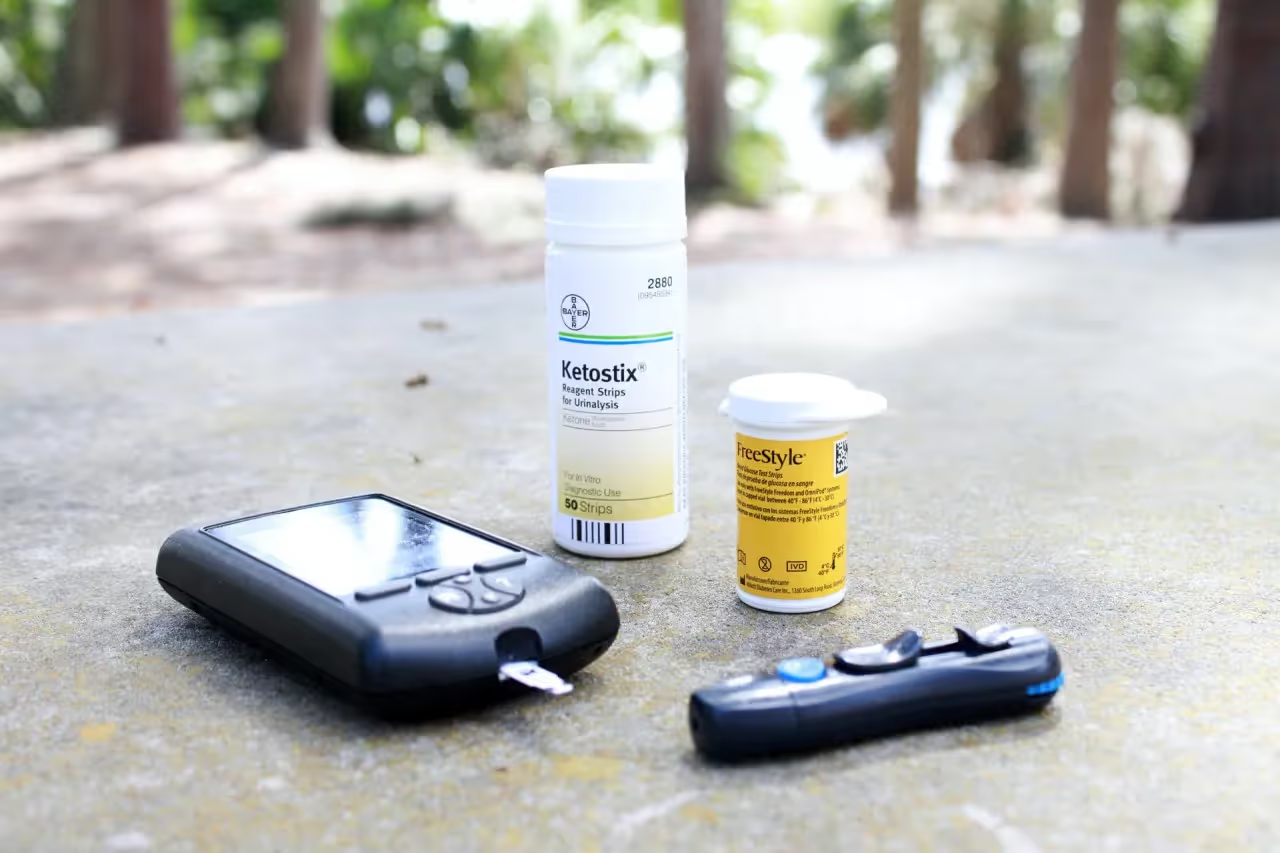Did you know that there is a relationship between Type 1 Diabetes and depression? Studies have shown that people with type 1 diabetes are more likely to...

Did you know that there is a relationship between Type 1 Diabetes and depression?
Studies have shown that people with type 1 diabetes are more likely to experience depression than those without the disease.
While the reason for this link is not completely known and research continues, it's important to be aware of the possibility and be on the lookout for signs of depression in people with type 1 diabetes.
If left untreated, depression can lead to poorer blood sugar control and other health problems.
Type 1 diabetes is an illness that affects the way your body produces and uses insulin.
The symptoms can be difficult to diagnose because they vary by person, but some general signs include excessive thirst (known as polydipsia), extreme hunger with stomach pain or nausea/vomiting when you eat food, and weight loss even while eating large amounts of carbohydrates such as fruit juices.
There is currently no cure available for Type 1 Diabetes; however, research into a cure continues!
As many already know, a diagnosis of this condition can be very difficult to bear.
The struggle with daily living that comes alongside it might make things seem even worse than they initially seemed and soon enough they will find themselves feeling down about everything.
The effects of Type 1 Diabetes on the brain are not fully understood, but it is believed that this condition cannot produce enough ketone bodies to sustain itself in people with Type 1 Diabetes.
As a result, they may become depressed as their body tissues fail them and there are less for neurotransmitters like serotonin or dopamine which help regulate moods.
Research has shown significant links between Type 1 Diabetes and depression due to long-term intensive needs such as daily insulin injections.
What Are the Signs of Depression in Someone with Type 1 Diabetes?
Below are signs of depression in adults with Type 1 Diabetes:
Children and adolescents with Type 1 diabetes can also show the below signs of depression:

SSRIs can be a great option for people with Type 1 Diabetes and depression.
They work by increasing the amount of serotonin in your brain, which helps regulate moods as well as other parts of mental health like anxiety or impulsivity.
People with Type 1 Diabetes and depression who are struggling emotionally can benefit from therapy treatments.
One such treatment that has been proven effective for those with Type 1 Diabetes and depression is Cognitive-Behavioral Therapy also known as CBT.
Cognitive Behavioral Therapy helps individuals with Type 1 Diabetes and depression identify their negative thoughts and replace them with more productive ones through goal-setting exercises, recovered memory techniques, or coping strategies.
It grooms' patients' minds by teaching mindfulness skills like deep breathing while also providing education on managing stress points along the way.
There are many people with diabetes who have depression, but often it's difficult to talk about.
We understand that you might not feel comfortable discussing your mental health or the risk factors for developing this condition.
Support groups provide an opportunity for like-minded individuals in recovery from type 1 diabetes-related illness and distress through honest conversations on anything related: relationship troubles, at any time during our lives' course; work issues such as stress at home when juggling career demands alongside family commitments, dealing w/the physical symptoms of Type 1 Diabetes and depression, etc.
The goal of support groups isn't just relief; they want people struggling emotionally or mentally to be able to remain active participants in their communities as well as maintain healthy living habits so that future episodes can be avoided.
Depression is a serious issue that should not be taken lightly.
If you are struggling with depression and have type 1 diabetes, it is important to seek help from a professional.
There are many treatment options available for those who suffer from both Type 1 Diabetes and depression.
Leave a comment below if you would like to share your story or ask a question.
We would love to hear from you!
https://www.jdrf.org/t1d-resources/living-with-t1d/mental-health/depression/
Ignoring depression can exacerbate symptoms and make it more challenging to manage over time. This can result in a negative impact on your personal, professional, and social life, leading to feelings of isolation and even thoughts of self-harm or suicide.
The duration of depression counseling varies for each individual, depending on the severity of their depression and their progress in therapy. Our therapists will regularly assess your progress and adjust your treatment plan as needed.
While medication is not always required for managing depression, it can be beneficial in some cases. If you decide that medication is right for you, medications such as antidepressants work by balancing certain brain chemicals involved in regulating moods. Other options include mood stabilizers or antipsychotic drugs which may also prove helpful for certain individuals struggling with symptoms of depression.
Yes! There are many effective natural remedies that may be beneficial in managing depressive symptoms, such as participating in regular physical activity, changing your diet, getting adequate sleep, practicing relaxation techniques like yoga or meditation, journaling about your feelings/thoughts/emotions, seeking out social activities/support groups with other individuals struggling with similar issues
Yes! In fact, it's encouraged that you open up to your therapist so they can gain deeper insight into your individual situation and develop the most effective treatment plan possible that works best for you. Your therapist is there to serve as an unbiased source of support who will respect any thoughts or feelings shared within the session without judgment or criticism.
Depression is a mental disorder (a common one) that affects millions of people worldwide. It is characterized by persistent feelings of sadness, hopelessness, and loss of interest in activities once enjoyed.In this section, we will discuss the various types of depression, including major depressive disorder, persistent depressive disorder, and bipolar disorder.Gaining a deeper understanding of your depression is the first step in finding the right treatment and support.